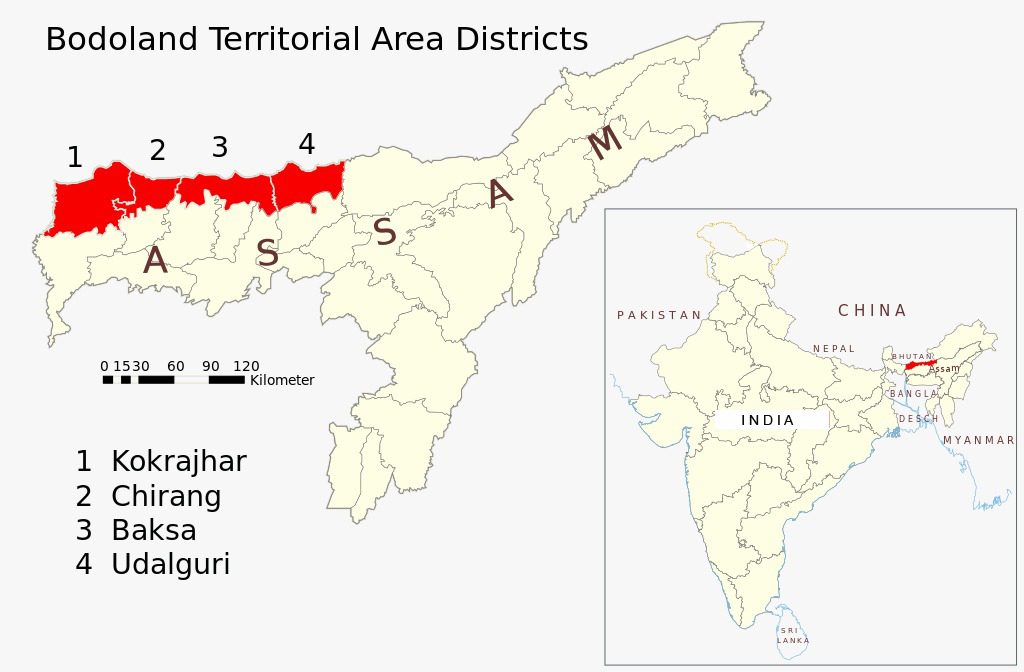Celebration of 17th Bodoland Accord Day, 10 February 2019

![]()
News Desk:
The people of Bodoland Territorial Area Districts have celebrated the 17th Bodoland Day to mark the signing of the Bodoland Accord. It was conducted with a grand festive mood.
There were thousands of people gathered for the celebration which was held at the BTC Secretariat Complex, Bodofa Nwgwr, Kokrajhar.
The Bodoland Territorial Council (BTC) is a territorial council that was established in the Assam state of India according to the Memorandum of Settlement on 10 February 2003. Later on Mr. Hagrama Mohilary was sworn in as the Chief Executive Member (CEM) on 7 December 2003.
Bodoland, officially the Bodoland Territorial Area Districts (BTAD), is an autonomous territory consisting of areas located in the extreme north on the north bank of the Brahmaputra River, within the state of Assam and north east region of India, by the foothills of Bhutan and Arunachal Pradesh. The region is predominantly inhabited by the indigenous Bodo people. The official map of Bodoland includes four districts of BTAD recognized by the Government of India. It is administered by the Bodoland Territorial Council, which covers over eight thousand square kilometers.
The territory came into existence under the BTC Accord in February 2003. Historically it was inhibited by the Boros or Bodos or the Kacharis before the intrusion of the Aryans. The British gained control of the region through the Treaty of Yandabo upon winning the First Anglo-Burmese War in 1826. The war was primarily for the control of Northeast India between the British and Burmese empires. It was then known as the Kachari Dwars or Kachari plains or Kachari country by the British during the British Raj. The Bodo people in the Brahmaputra Valley have survived in the midst of Aryan and Shan invaders and settlers, while one of its cousins known as Koch, that ruled various parts of Lower Assam and North Bengal have now gradually become a semi-Hinduised aboriginal caste, due to inter-marriage who now speak Bengali or Assamese.
Surviving remnants of the royal family of Koch Empire, proved aboriginal members of the Koch caste spoke Bodo language. The region is also the gateway to the North Eastern Region of India, where one of the main students organization, All Bodo Students Union (ABSU), allied with National Democratic Front of Boroland – Progressive (NDFB-P), National Democratic Front of Boroland – D.R. Nabla faction, People’s Joint Action Committee for Boroland Movement (PJACBM) which was an amalgamation of over three dozen Bodo organizations and its supporters had been demanding from the Government of India that a separate state (within the Indian Union) be created comprising the seven districts of Kokrajhar, Chirang, Baksa, Udalguri, Sonitpur, Lakhimpur and Dhemaji of Assam which have a significant Bodo population. On the other hand, it is also claimed as a sovereign state (Complete independence) by the separatist insurgent group NDFB. It is to be noted that Government of India designated NDFB as a terrorist organization.